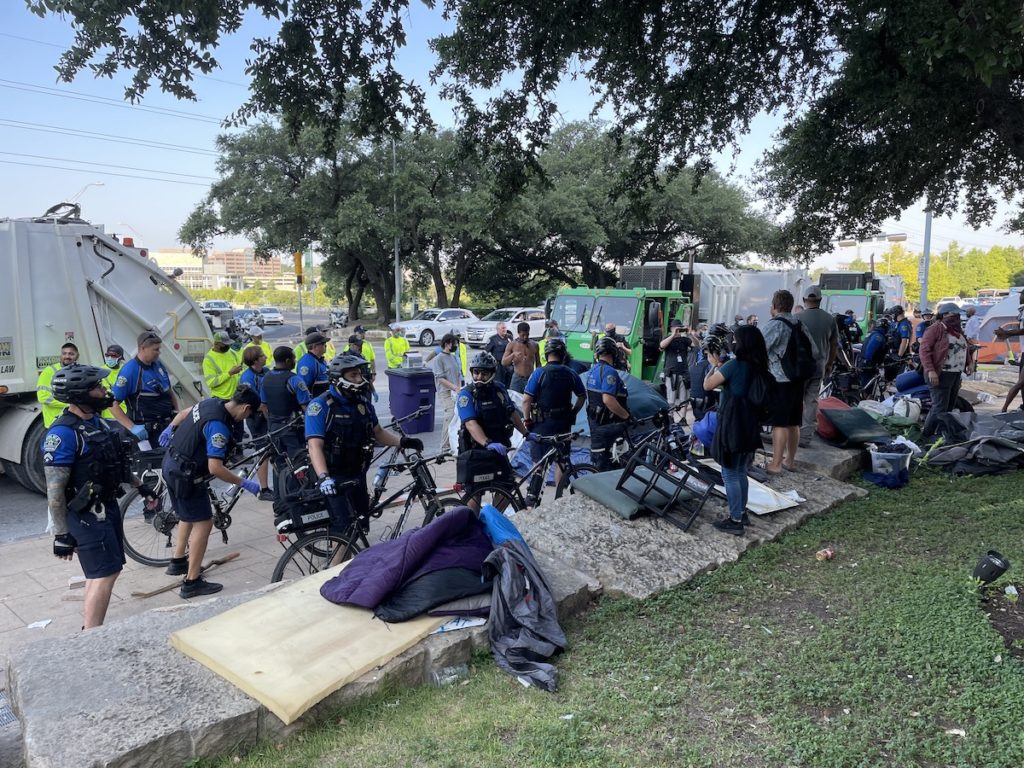On June 14, Austin, Texas police began violently evicting homeless people in an encampment at City Hall. The escalation of police violence against homeless people comes after the passing of Proposition B, an anti-homeless amendment to city ordinances that criminalizes “public camping.”
City officials stated that during the second “phase” of Prop B enforcement, which began on June 13, police would involve police issuing written warnings and citations. Instead, police began pulling people from their tents, seizing property, and making arrests at 7:30 AM on June 14. While some tents remain, it is not clear why police seized certain tents over others.

Officers with the Austin Police Department gave misleading and confusing information to residents. Some residents attempted to comply with police requests to relocate their tents nearby. When they arrived at the new location, they were told that they could not camp there due to the ban on new encampments. Police described the Prop B enforcement calendar, outlined by city manager Spencer Cronk, as “just a guideline,” not policy. Police made additional arrests after the initial seizures, citing “interference,” as they destroyed or confiscated all tents and belongings along the north side of City Hall.
Austin partially decriminalized homelessness after the pressure of the Homes Not Handcuffs campaign in 2018. Since then, the city has become the scene of intense struggle between progressive and reactionary forces. Police continued their campaign of harassment even after the passage of HNH initiatives, mainly through “sweeps” that involved dismantling of tents and taking of homeless people’s belongings. Anti-homeless forces launched a wave of terror by attacking camps and torching tents in 2019. Using deceptive tactics and waiting for a low-turnout ballot, the anti-homeless coalition Save Austin Now finally overturned most protections for homeless people, passing Proposition B in an election with only 17 percent total voter turnout.
Organizers from the original Homes Not Handcuffs campaign, as well as many others in the struggle for homeless rights, have responded by organizing their communities for the fight ahead. Mutual aid organizations provide services and resources to encampments, while some groups have even successfully managed to document and stop police sweeps. The struggle in Austin shows that if we want dignity for oppressed people, we need to be willing to organize and fight for it!






